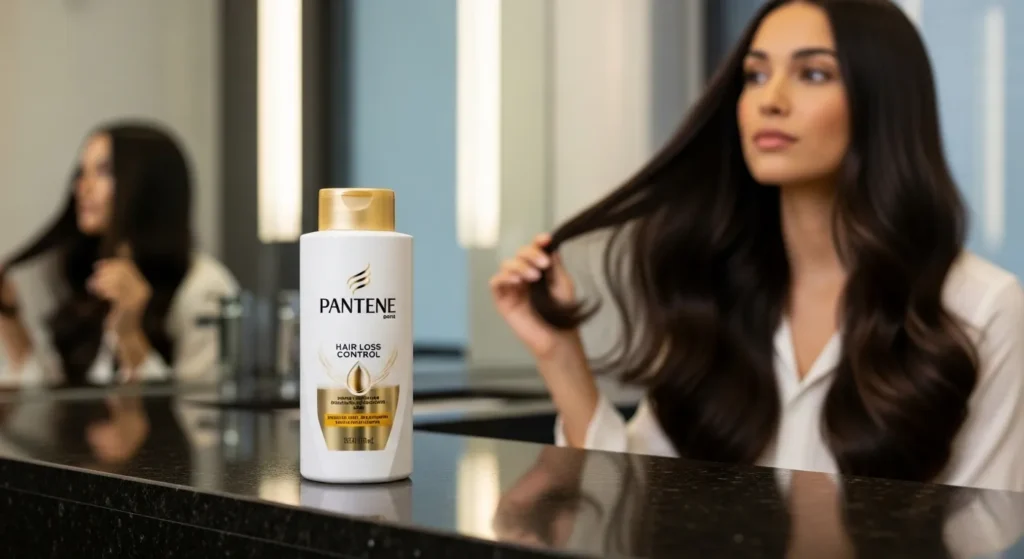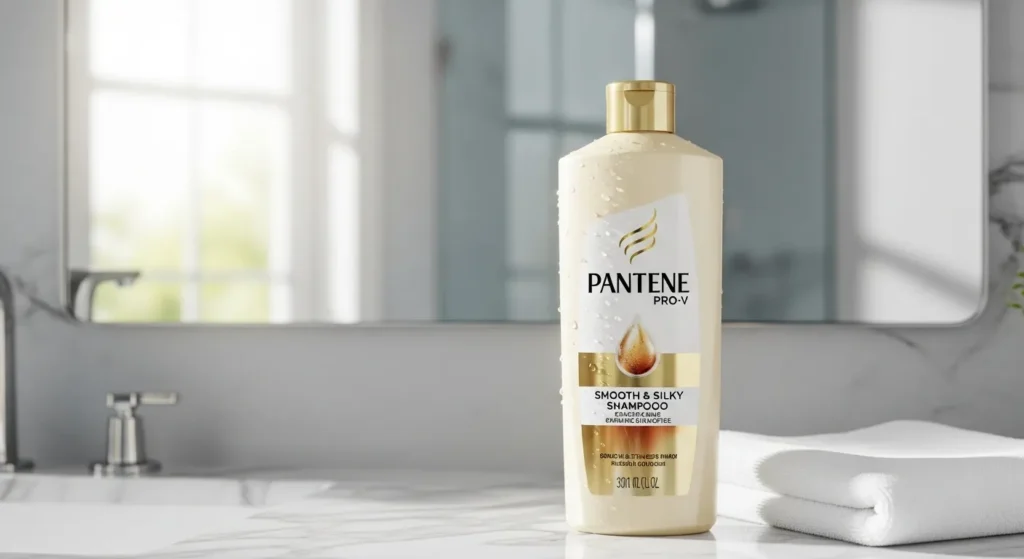If you’ve come across headlines about the Pantene shampoo hair loss lawsuit, you may be wondering whether your favorite haircare products are safe.
This guide breaks down what the lawsuit is about, which products are involved, and what the evidence says about health concerns like hair loss or chemical contamination.
You’ll also learn about the current legal status, expert insights, and the steps you can take to protect yourself.
Lawsuit Overview: What Is the Pantene Shampoo Hair Loss Lawsuit About?

The lawsuit involving Pantene focuses on allegations that some of Procter & Gamble’s (P&G) products were misleadingly marketed as “natural” or “naturally derived” when, in fact, they contained synthetic ingredients.
- Products involved: Pantene Pro-V Nature Fusion, Herbal Essences Bio: Renew, and certain Pantene dry shampoos.
- Main claims: Consumers argue that P&G misrepresented the ingredient percentages and failed to disclose potentially harmful additives.
According to McWhorter et al. v. P&G, plaintiffs allege that these advertising claims amount to false labeling and consumer deception.
Health and Safety Concerns: Hair Loss vs. Contamination
Hair loss allegations—are they substantiated?
Many consumers reported experiencing shedding, thinning, or hair breakage after using certain Pantene products. However, dermatologists stress that no scientific evidence directly links Pantene shampoo to permanent hair loss.
- In most cases, hair thinning is caused by genetic factors, stress, hormonal imbalances, or medical conditions, not shampoo.
- Some formulas contain silicones or sulfates, which can lead to buildup, scalp irritation, or breakage in sensitive individuals—but not true follicle damage.
Benzene contamination in dry shampoos
In 2021, P&G recalled several Pantene and Herbal Essences dry shampoos after benzene contamination was detected. Benzene is a known carcinogen linked to blood cancers like leukemia.
- Affected products: Aerosol sprays and dry shampoos.
- Risk level: Long-term exposure poses health risks; however, short-term exposure from limited product use remains under study.
Legal Proceedings & Current Status
McWhorter et al. v. P&G
- Filed in California, this class action challenged P&G’s claims of “natural-origin” ingredients in Pantene and Herbal Essences.
Court outcomes
- In 2021, a judge dismissed one version of the complaint about Pantene Pro-V Nature Fusion. The dismissal was based on insufficient evidence but left room for refiling.
Settlement status
- As of now, no finalized settlement has been reached regarding the Pantene shampoo lawsuits. Investigations and legal proceedings remain ongoing.
Ingredients and Marketing Claims Examined
Natural-origin percentages questioned
The lawsuit challenges P&G’s use of statements like “90% naturally derived ingredients.” Plaintiffs claim the calculation is misleading, as it includes water while ignoring the presence of synthetic chemicals.
Greenwashing concerns
This case is also part of a broader discussion on greenwashing in beauty marketing, where companies exaggerate eco-friendly or natural claims to appeal to conscious consumers.
Pro Tip: Always review the ingredient list—marketing claims can be vague. Look for dermatologically tested, sulfate-free, or paraben-free certifications for added safety.

What You Can Do: Safety & Legal Options
Consider legal options: Class action sign-ups are often listed on consumer rights websites.
Stop using recalled products immediately.
Consult a dermatologist if you’re experiencing unusual shedding or scalp irritation.
Check official FDA recall notices for updates.
FAQs
Does Pantene shampoo cause hair loss?
There is no medical proof that Pantene directly causes permanent hair loss. Some people may experience irritation or shedding due to sensitivity.
Which Pantene products are implicated?
The lawsuits mainly involve Pantene Pro-V Nature Fusion, Herbal Essences Bio: Renew, and recalled dry shampoos.
Is benzene contamination confirmed in all Pantene products?
No. Only certain aerosol spray products were recalled. Regular liquid shampoos and conditioners were not part of the benzene recall.
What should I do if I used affected products?
Stop using recalled products, consult your doctor if you notice symptoms, and consider filing a report with the FDA.
Can I join the lawsuit or claim compensation?
Class action participation depends on court certifications. Consumers may be eligible for refunds if settlements are reached.
What are safer alternatives?
Look for sulfate-free, paraben-free shampoos tested by dermatologists.
Take Your Next Step
If you are experiencing ongoing hair loss, it may not be linked to shampoo at all. Conditions like androgenetic alopecia, stress, or hormonal imbalance often play a larger role. Professional diagnosis is key.
👉 Book a consultation with Dr. Rana Irfan in Islamabad today to discuss safe, effective treatments for hair loss, from medical therapies to advanced hair transplants. Your hair health deserves expert care
